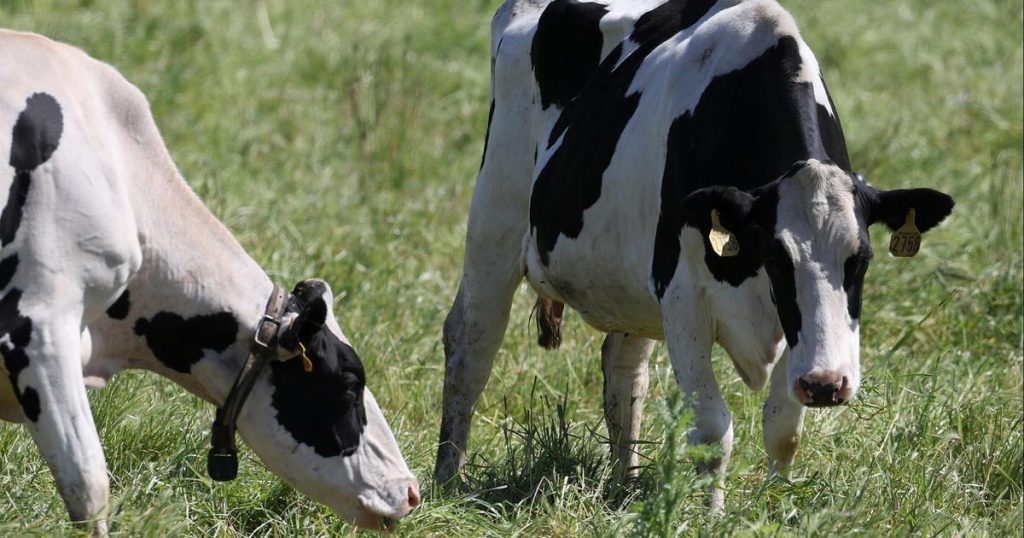A Michigan farmworker has been diagnosed with bird flu, marking the second human case associated with the current outbreak in U.S. dairy cows. The patient had mild symptoms of an eye infection and has since recovered. The risk to the public is considered low, according to Michigan health officials. The first case occurred in Texas in late March, with similar symptoms of a mild eye infection.
The H5N1 bird flu virus, also known as highly pathogenic avian influenza, has been causing morbidity and mortality in animal species across the U.S. since 2020. The virus, carried by migratory birds, has also affected poultry flocks in multiple states. While the virus has not yet been found to spread from person to person, public health officials are monitoring closely for any signs of mutations that could make transmission more efficient.
The virus has been detected in U.S. livestock this year, with cases confirmed in dairy herds in multiple states. The Food and Drug Administration has confirmed that pasteurization is effective in killing the virus, ensuring the safety of the commercial milk supply. Health officials warn against consuming raw milk, despite some influencers promoting it on social media. Raw milk is considered one of the riskiest foods due to its potential contamination with harmful bacteria that can lead to severe illness.
An investigation is ongoing to understand more details about the Michigan farmworker’s situation. While a nasal swab tested negative for the virus, an eye swab tested positive for an eye infection. Public health officials emphasize the importance of not consuming unpasteurized dairy products to prevent the risk of infection. The Centers for Disease Control and Prevention warns that raw milk can be contaminated with harmful germs that may cause symptoms like diarrhea, stomach cramping, and vomiting.
The current outbreak of bird flu in U.S. dairy cows has raised concerns about food safety, particularly around milk. Despite the presence of the virus in livestock, testing confirms that pasteurization effectively eliminates it from milk. The Centers for Disease Control and Prevention continue to closely monitor the situation and caution against the consumption of raw dairy products. While the virus has not shown signs of spreading between humans, health officials remain vigilant for any mutations that could increase transmissibility. Public health measures are in place to prevent further cases of bird flu in both animals and humans.


